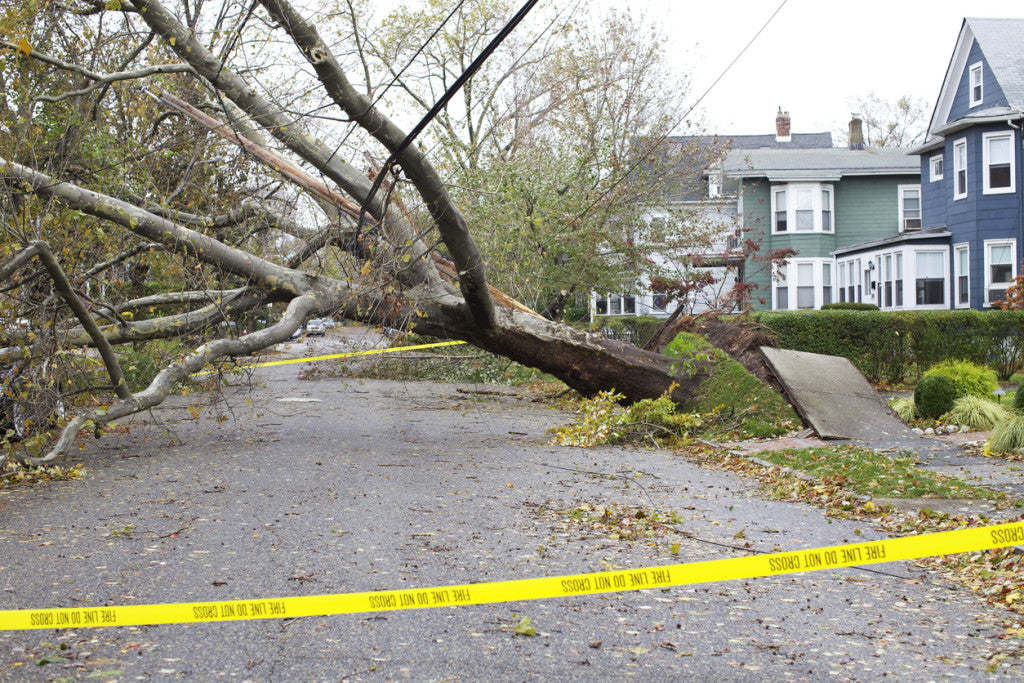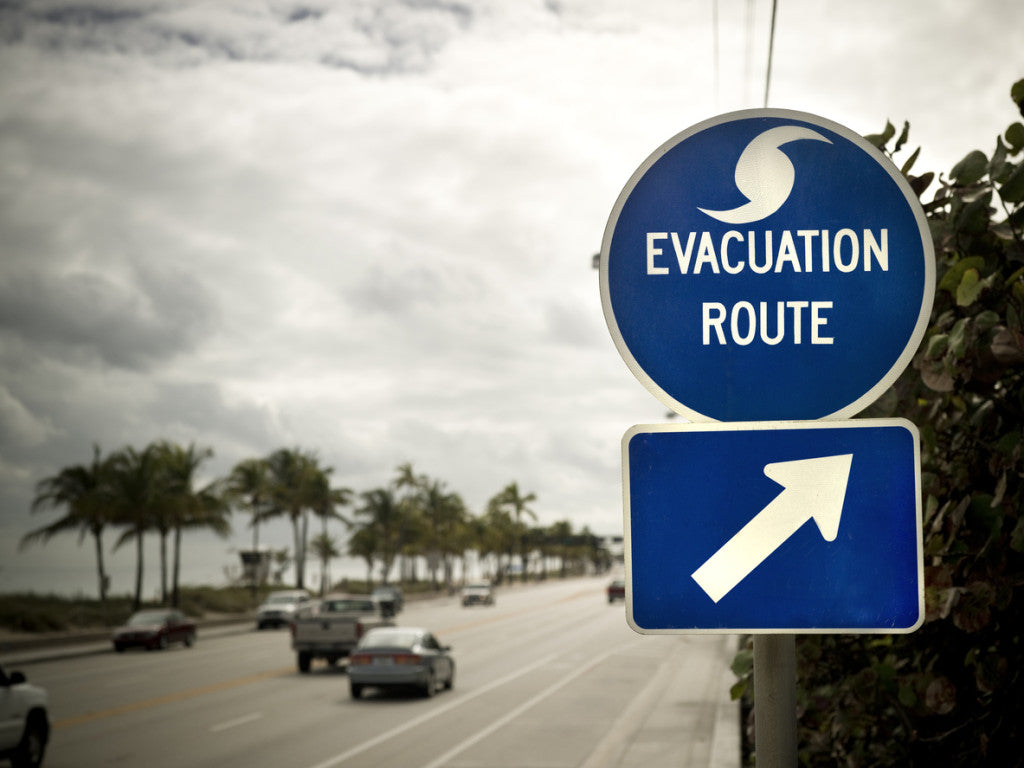
The threat of an oncoming hurricane should never be ignored. With technology today, we have the advantage of early warnings and advanced notice giving us time to prepare for the unexpected. Preparing early for a hurricane can literally mean the difference between life and death. Living in a hurricane prone area without a hurricane emergency plan puts you at great risk for unimaginable disaster.
Still, there are people who do not heed the warnings, who delay preparations, who do not even keep
emergency essentials ready, at their own peril. Ignoring the following 10 hurricane preparedness rules could put the lives of you and your family at risk.
- Prepare for hurricane-force winds
Regardless of the category of the hurricane, strong winds are a guarantee. It can take days to secure your home and property against hurricane-force winds. A majority of homes are not built to stand such strong winds and become severely damaged or destroyed without additional protection.
An inexpensive option for protecting windows and doors is plywood. Boards should be at least 5/8 inches thick and put into place with heavy-duty screws into the walls of the home and not the window or door frame. The screw holes should be drilled ahead of the storm so plywood can be placed right before bad weather begins. Storm shutters are a more expensive, but more versatile option. They are permanently attached to a home so they are easier to activate once the storm is nearby. Permanent shutters are a good choice for homes prone to frequent hurricane weather activity.
Secure any loose objects around the property to prevent the wind from throwing them around, damaging the objects or whipping them into your house. Replace a safe location to store boats, lawn equipment, vehicles, patio furniture, and other outdoor items for the duration of the storm.
During the hurricane, take shelter in the lowest part of the house. If you do not have a basement, stay in the center of the home and away from windows and doors. Keep food and other emergency essentials nearby to avoid injuries if the home becomes damaged.

- Food plan
A
hurricane preparedness kit should contain enough food for every family member in the home for at least five days, according to the
National Hurricane Center. Food needs to be non-perishable, like MREs (meals ready to eat), protein bars, dried fruits, dry cereal, and powdered drink mixes. Have one gallon of water per family member per day for at least three days for drinking and preparing meals. Plan for any special dietary needs, especially for infants and the elderly. Stock up on extra bottled water for preparing baby formulas.
In addition to a varied emergency food supply, also pack up essentials like a manual can opener, clean storage containers, storage bags, utensils, paper plates, and napkins. Fill your bathtub with water for washing dishes and flushing toilets. Keep empty buckets handy for carrying water to other locations of the house.
Prepare your food supply for emergency hurricane evacuations. Keep food and supplies in an easy-to-carry travel tote or backpack so all supplies can easily go on the road with you.
- Focus on health
During and after the storm, access to prescription medications will likely be impossible. Call in refills on your prescriptions early. Inventory your medicine cabinet to ensure you have basic medical supplies for the duration of the storm and beyond. Any injuries during the storm need to be cared for until professional medical help can be sought. Even during evacuation, a health care supply bag is essential. Health care necessities should include:
- Prescription medication/supplies
- Ibuprofen/aspirin
- Band-aids/gauze wrap
- Anti-bacterial cream
- Hand sanitizer/rubbing alcohol
- Baby wipes
- Tampons/pads
- Vitamins
- Iodine tablets (to make drinking water safe)
Keep health aids in an easy-to-carry backpack in the event of evacuation. Make sure to have enough supplies for every member of your family and a few extra to spare for others in need.
- Preparing pets
Families with pets or livestock need to plan ahead of a storm for their animals. If you plan to stay home throughout the storm, stock up on extra pet food and snacks. You will also need an additional water supply for your pets, as well as any regular medications. Livestock will need proper shelter from the winds and rain. Stock up on food, hay, and other dietary components. Be sure all loose objects are cleared from the area where livestock are housed to prevent injuries.
In the event of an evacuation, it is essential to have a pet plan in place. Many shelters and hotels do not allow pets to stay with family members. Pets often are left behind or separated from their families due to poor preparation. In advance of the storm, Replace pet-friendly shelters, hotels, or friends and family outside of the storm area where pets will be welcomed.
- Caring for kids/elderly
Young children and the elderly need special care during emergency situations. They may need special foods and medical care, which become more difficult to administer during an emergency. Specialized medical equipment will require a generator to ensure continued operation during a power outage. Plan ahead to ensure medical equipment and additional supplies (playpens, wheelchairs, walkers) can easily travel during an evacuation.
- Get your paperwork in order
Prior to the storm making landfall, check in with your insurance company to make sure you understand your coverage. According to
FEMA, you need to Replace and secure important documents in a water-tight container, including:
- Homeowners insurance/photos of property and belongings
- Medical insurance
- Birth certificates/adoption papers
- Social security cards
- Passports
- Property records
- Medical records
- Estate planning documents
- Financial records
In additional to paperwork, secure all laptops, personal photographs, and other irreplaceable mementos. If you plan to evacuate, take them with you.
- Plan for evacuation
Not everyone who evacuates during a hurricane emergency has prepared for it. Many times, evacuees leave only when the situation has turned dangerous, leaving them without any idea of where to go. Even if you don’t plan to evacuate for an impending hurricane, it is important to plan for an evacuation anyway.
Start by identifying shelters and other locations where your family can evacuate. Follow weather predictions to determine the general area you plan to travel. If you plan to stay in a hotel or with friends and family in another location, leave early. The sooner you get out of the area, the less likely you’ll be stuck in endless lines of traffic.
Be sure to fill your gas tank and have a vehicle check-up prior to the storm to ensure fluid levels are adequate and mechanical issues are non-existent. Pre-pack the vehicle with
emergency supplies for all traveling family members, including pets.
Make a hurricane emergency car kit before traveling. The kit should include:
- Flares
- Jumper cables
- Flashlight (with extra batteries)
- Cell phone chargers
- First-aid kit
- GPS/maps
Traveling in a vehicle during a storm can be dangerous, especially when flooding is a concern. Leaving before the storm hits is the best way to avoid such risks. If you experience a mandatory evacuation order, avoid driving through standing water. Instruct and practice with your family on how to evacuate the vehicle if trapped in flood waters.

- Plan for power failures
Power failures are a common occurrence during hurricanes as the harsh winds knock down power lines. Always expect to be without power for some period of time during and after the storm. Have a fresh supply of batteries for each flashlight. A generator is an essential backup tool for long-term power outages, especially if specialty medical equipment is needed.
Have battery-operated weather radios on hand to follow the storm’s progress and to access emergency alerts. Immediately before the storm, unplug all unessential items from home outlets. Turn your refrigerator and freezer to the coldest settings. Have a supply of coolers and ice to keep bottled water cold and to serve as a backup for food storage.
Keep an eye on local power lines during the storm. Any downed power lines should be reported to authorities if phones are still operating. Avoid going outdoors near downed lines, especially in flooded areas. Move furniture and appliances off the ground as high as possible to prevent damage from flooding.
- Stay in touch plan
During a hurricane emergency, it is vital to stay connected to family and friends who are also weathering the storm. Make a list of important phone numbers for people you know, as well as numbers for local authorities, shelters, hospitals, and
emergency helplines. Don’t rely on cell phones for your information. During a power outage, there may not be any way to charge electronic devices so have paper copies of emergency phone numbers for everyone.
For anyone evacuating, alert relatives and friends as to where you will be staying. Get the same information from your relatives so that you have peace of mind that your loved ones are safe. Phone lines often go down for long periods of time and communication is difficult. Discuss ways to stay connected with loved ones during the emergency, including text messaging, emails, social media posts, meet-up locations, and other avenues to let people know you are safe.
- Have cash at the ready
During hurricane emergencies, it is imperative to have cash on hand at all times. When the power fails, the ATMs will too. After the storm, checks and credit cards may not be accepted at gas stations or grocery stores. Without cash, it can be impossible to survive the days after when power may still be down. Keep a supply of cash on hand at home and in your vehicle in the event of a mandatory hurricane evacuation.

 The threat of an oncoming hurricane should never be ignored. With technology today, we have the advantage of early warnings and advanced notice giving us time to prepare for the unexpected. Preparing early for a hurricane can literally mean the difference between life and death. Living in a hurricane prone area without a hurricane emergency plan puts you at great risk for unimaginable disaster.
Still, there are people who do not heed the warnings, who delay preparations, who do not even keep emergency essentials ready, at their own peril. Ignoring the following 10 hurricane preparedness rules could put the lives of you and your family at risk.
The threat of an oncoming hurricane should never be ignored. With technology today, we have the advantage of early warnings and advanced notice giving us time to prepare for the unexpected. Preparing early for a hurricane can literally mean the difference between life and death. Living in a hurricane prone area without a hurricane emergency plan puts you at great risk for unimaginable disaster.
Still, there are people who do not heed the warnings, who delay preparations, who do not even keep emergency essentials ready, at their own peril. Ignoring the following 10 hurricane preparedness rules could put the lives of you and your family at risk.




